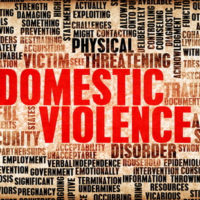
Trauma Bonding
 If you have been trapped in an abusive relationship and do not know why you have been unable to leave, or family members and friends do not understand why you are still in the relationship, there is a very clear cut answer. It is not just you. There is nothing wrong with you or abnormal with your behavior, because, in fact, there is chemical bond that makes it incredibly difficult to sever even the most abusive, violent relationships. This bond is called trauma bonding, and while we strongly encourage you to call an attorney and law enforcement for help today, it is important that you know why you may have been struggling to break free for so long.
If you have been trapped in an abusive relationship and do not know why you have been unable to leave, or family members and friends do not understand why you are still in the relationship, there is a very clear cut answer. It is not just you. There is nothing wrong with you or abnormal with your behavior, because, in fact, there is chemical bond that makes it incredibly difficult to sever even the most abusive, violent relationships. This bond is called trauma bonding, and while we strongly encourage you to call an attorney and law enforcement for help today, it is important that you know why you may have been struggling to break free for so long.
We all Have Bonds, but Those Who Experience Trauma Have Even More Intense Bonds With Their Partners
Humans are social animals, which means that we form strong bonds with one another. These emotional attachments help us see from another’s point of view, let us forgive one another after an argument or fight, provide high levels of care for others, and, overall, make society as we know it possible. Bonds also make it exceedingly difficult when we lose a loved one, whether it is due to death, divorce, or separation. When trauma is involved, the strength of that bond is drastically increased. A trauma bond is the “misuse of fear, excitement, sexual feelings, and sexual physiology to entangle another person,” according to the Abuse and Relationships Organization. When two people share a traumatic experience together, such as surviving a disastrous mountaineering trip or another type of accident, a special, traumatic, bond is formed. A traumatic bond is also formed when two people engage in extreme sports or activities, or when the relationship is physically, emotionally, or psychologically abusive. Moreover, if a person experienced traumatic incidents earlier in their life, they are even more prone to traumatic bonding with their abusive partner due to cognitive learning.
The Longer the Relationship and More Traumatic the Abuse, the Stronger the Trauma Bond
The longer the abusive relationship lasts, the harder it becomes to leave because the brain has essentially been re-wired to need the abusive person and the trauma that they cause. And, after abuse has occurred, the abused person will tend to seek the comfort or consolation of the person who carried out that very abuse. The abuser controls the abuse–when it stops and starts, therefore they hold not only the power to abuse, but also the power to make the pain end. According to Coping With Trauma: Hope Through Understanding, “the alternation of distress and relief cements the bond.” Additionally, the abused feels entirely dependent upon the abuser. This is why it is so difficult for millions of victims across the country and North Carolina to leave abusive relationships.
Contact an Attorney for Help
Whether you or a family member are trapped in an abusive relationship in which domestic violence occurs frequently or infrequently, it is of the utmost importance that you reach out for help to break the trauma bond. Counselors, safe houses, law enforcement, and attorneys can all offer different and important types of support. Please reach out to the Charlotte, North Carolina domestic violence attorneys at Powers Landreth PLLC today for help with your situation.
Resources:
abuseandrelationships.org/Content/Survivors/trauma_bonding.html
books.google.com/books?id=xHK4vjl-RRAC&pg=PA125#v=onepage&q&f=false
Learn More